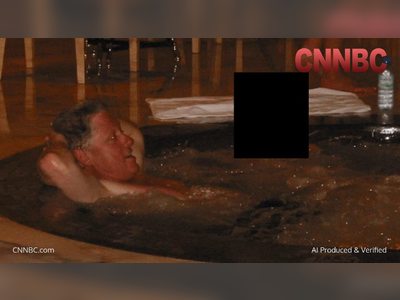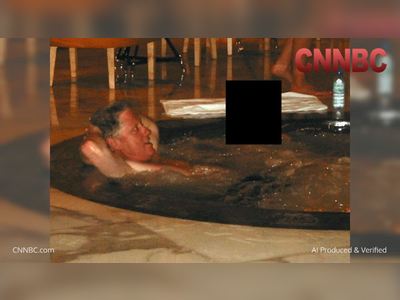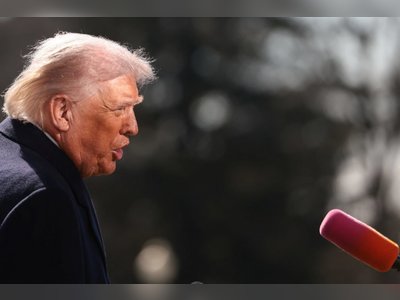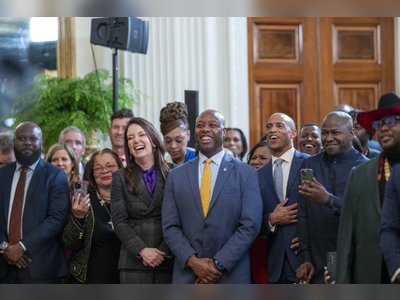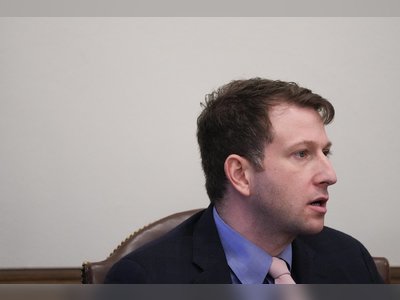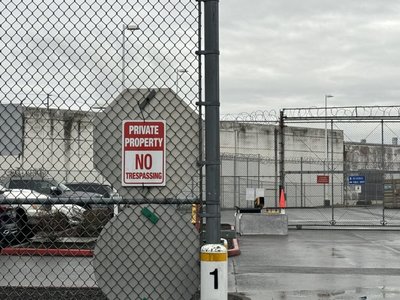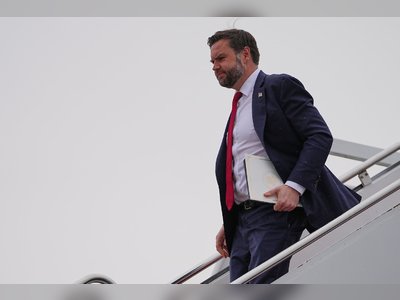
Zelenskyy Demonstrates Caution Amid Ongoing U.S. Negotiations on Ukraine's Future
Ukrainian President Volodymyr Zelenskyy adopts a restrained diplomatic approach following recent tensions with U.S. officials.
On Wednesday afternoon, President Volodymyr Zelenskyy of Ukraine conducted a press conference in central Kyiv that lasted approximately 30 minutes.
Observers noted that his statements were notably devoid of provocative content, a calculated move aimed at demonstrating Ukraine's willingness to engage in negotiations with the United States.
This approach seeks to address recent diplomatic tensions, particularly during a contentious meeting with U.S. President Donald Trump and Vice President JD Vance in the White House two weeks prior.
In his remarks, Zelenskyy characterized a recent meeting between U.S. and Ukrainian delegations held in Saudi Arabia as 'very positive', though he refrained from disclosing specific details, stating that they would be shared later.
He highlighted the importance of discussing security guarantees, contingent upon a proposed 30-day ceasefire.
Zelenskyy's communication style, which has been a strength throughout the protracted conflict, has been reassessed in light of his interactions with the Trump administration.
Recent consultations with British and French officials have advised him to adopt a more measured tone, as any inflammatory comments could escalate tensions with the U.S. leadership.
This strategy was evident in his deliberate pauses and calculated responses during the press conference.
When questioned about the impact of a temporary halt in U.S. intelligence sharing on Ukrainian military operations, Zelenskyy chose not to provide specifics, stating, 'One day I’ll tell you, but I can’t answer that now.' His careful avoidance of controversial topics aimed at preventing further discord was particularly noteworthy, especially in light of past comments he had made regarding Trump.
In previous exchanges, Trump had referred to Zelenskyy in derogatory terms, highlighting the volatile nature of their relationship.
This past conflicts had underscored the risks of public statements that could provoke a response from the U.S. president.
Zelenskyy commented on the widespread potential repercussions of a single tweet, emphasizing that such remarks could significantly impact the Ukrainian military's morale and operations.
Despite the unpredictability of the Trump administration, there are indications of a shift in U.S. policy towards Ukraine.
The resumption of intelligence sharing suggests a thawing of relations, with some U.S. officials now expressing clearer support for Ukraine's sovereignty and defense needs.
For instance, U.S. Senator Lindsey Graham, who had criticized Zelenskyy following the earlier White House meeting, has recently signaled a stronger commitment to imposing sanctions and tariffs on Russia to encourage a diplomatic resolution.
As diplomatic efforts continue, the focus remains on how both Ukraine and the U.S. navigate the evolving political landscape and the implications of their interactions amid ongoing conflict in the region.
Observers noted that his statements were notably devoid of provocative content, a calculated move aimed at demonstrating Ukraine's willingness to engage in negotiations with the United States.
This approach seeks to address recent diplomatic tensions, particularly during a contentious meeting with U.S. President Donald Trump and Vice President JD Vance in the White House two weeks prior.
In his remarks, Zelenskyy characterized a recent meeting between U.S. and Ukrainian delegations held in Saudi Arabia as 'very positive', though he refrained from disclosing specific details, stating that they would be shared later.
He highlighted the importance of discussing security guarantees, contingent upon a proposed 30-day ceasefire.
Zelenskyy's communication style, which has been a strength throughout the protracted conflict, has been reassessed in light of his interactions with the Trump administration.
Recent consultations with British and French officials have advised him to adopt a more measured tone, as any inflammatory comments could escalate tensions with the U.S. leadership.
This strategy was evident in his deliberate pauses and calculated responses during the press conference.
When questioned about the impact of a temporary halt in U.S. intelligence sharing on Ukrainian military operations, Zelenskyy chose not to provide specifics, stating, 'One day I’ll tell you, but I can’t answer that now.' His careful avoidance of controversial topics aimed at preventing further discord was particularly noteworthy, especially in light of past comments he had made regarding Trump.
In previous exchanges, Trump had referred to Zelenskyy in derogatory terms, highlighting the volatile nature of their relationship.
This past conflicts had underscored the risks of public statements that could provoke a response from the U.S. president.
Zelenskyy commented on the widespread potential repercussions of a single tweet, emphasizing that such remarks could significantly impact the Ukrainian military's morale and operations.
Despite the unpredictability of the Trump administration, there are indications of a shift in U.S. policy towards Ukraine.
The resumption of intelligence sharing suggests a thawing of relations, with some U.S. officials now expressing clearer support for Ukraine's sovereignty and defense needs.
For instance, U.S. Senator Lindsey Graham, who had criticized Zelenskyy following the earlier White House meeting, has recently signaled a stronger commitment to imposing sanctions and tariffs on Russia to encourage a diplomatic resolution.
As diplomatic efforts continue, the focus remains on how both Ukraine and the U.S. navigate the evolving political landscape and the implications of their interactions amid ongoing conflict in the region.


